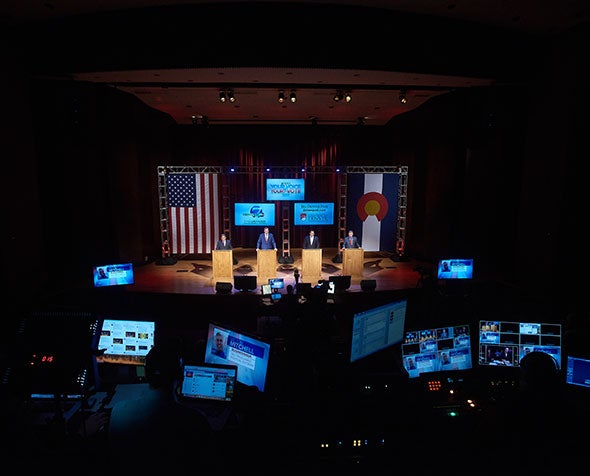Current Students
The great American tradition of political debate is becoming a campus tradition at the University of Denver. Colorado’s nominees for governor, Congressman Jared Polis and state Treasurer Walker Stapleton, squared off in the Cable Center Oct. 23 in a heated, 90-minute discussion of the state’s most pressing issues.
The event, hosted by DU’s Center on American Politics (CAP), was the final gubernatorial debate of the 2018 election and the most recent example of the University’s commitment to civil political discourse. In addition to the 2012 presidential debate between Barack Obama and Mitt Romney, DU welcomed four Republican candidates and four Democratic candidates in June for a pair of primary debates.
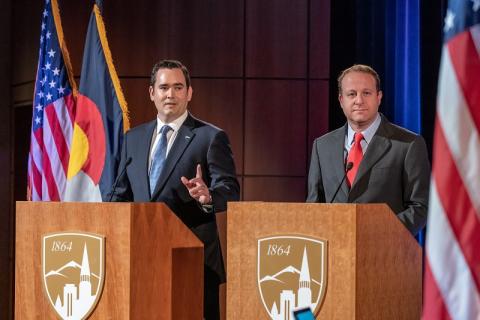
“This was the sort of thing I had always hoped for us to be able to do,” said Seth Masket, a professor and chair of the Department of Political Science who founded CAP in 2017. “One of its missions was to bring American politics here to campus. This helps to get our reputation out there that if you want to do something political in Colorado, this is one of the places you come.”
In front of faculty, staff, students and the Denver community, Stapleton and Polis weighed in on the long list of amendments and propositions voters will find on their ballots this year. They sparred over ways to fund education and infrastructure, while trading ideas to create affordable housing and reduce crime.
Journalists Anne Trujillo of Denver7 and the Denver Post’s Nic Garcia served as moderators for a debate that was televised and streamed live on DU’s Facebook page. More than 5,000 people tuned in online to watch the candidates explain their views.
"One of [the Center's] missions was to bring American politics here to campus. This helps to get our reputation out there that if you want to do something political in Colorado, this is one of the places you come.”
Seth Masket Director, DU Center on American Politics
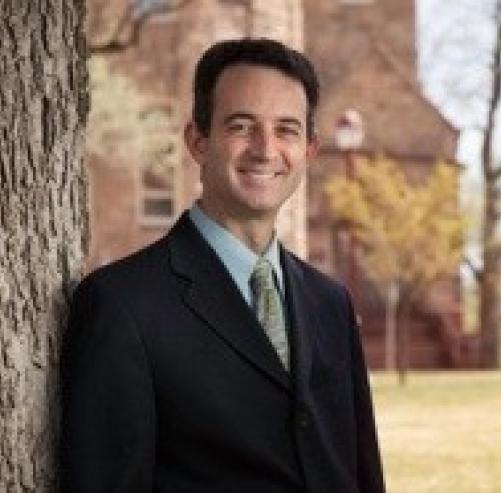
“This is certainly not a biased event,” Masket said. “This is a chance for both sides, both parties, to come together and say what they stand for and actually let voters make up their minds. In general, a university is not supposed to be preaching one political view or another. It’s a place where people can learn about various political views at various events.”
Provost Jeremy Haefner, who attended the debate, agreed, noting young voters in particular stood to gain from the political exposure.
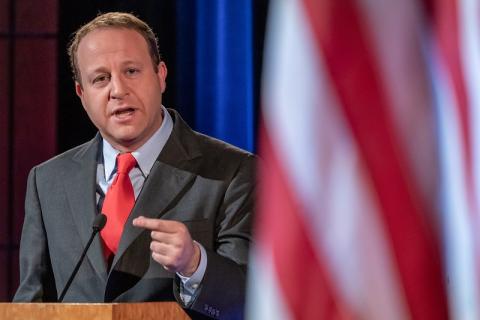
“One of the greatest values that the University of Denver can bring for its students is when we connect them with real-life experiences,” he said. “They build a portfolio of lived experiences they can integrate with their academic learning.”
For many students in the audience, it was a first opportunity to see a live debate. It was a chance, they said, not only to see a candidate for major political office up close, but also to escape bias and expose themselves to a greater diversity of opinion and thought.
And though higher education was not a topic of discussion this time, sophomore Seher Puri still said “witnessing history” will have a lasting impact on her role in the political process.
“A debate on campus really motivates students to vote,” said Puri, who is pursuing sociolegal studies major and has her own future political aspirations. “We’re already so busy with extracurriculars and a social life, [voting] is put on the back burner, but bringing this debate to campus makes it a priority.”
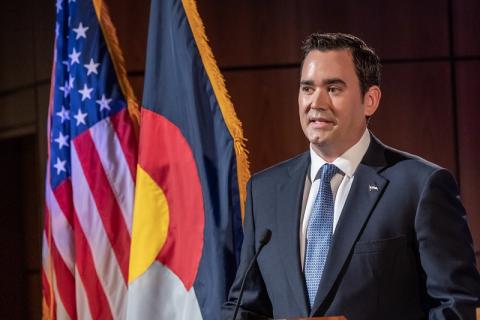
The close of the electoral season does not mean things are slowing down at the Center on American Politics. CAP is already planning an election night watch party for students, Masket said. A couple days later, CAP will host a panel discussion with political strategists from both parties on what can be learned from the 2018 election.
These and other events are designed, in part, with an increasingly critical population of young voters in mind. As the provost noted, “We are distinguished because of our mission around the public good, and there is no better example of an execution of a mission than tonight's debate in front of our students in a meaningful way. I think we’re going to make a major contribution to the dialogue for democracy.”
